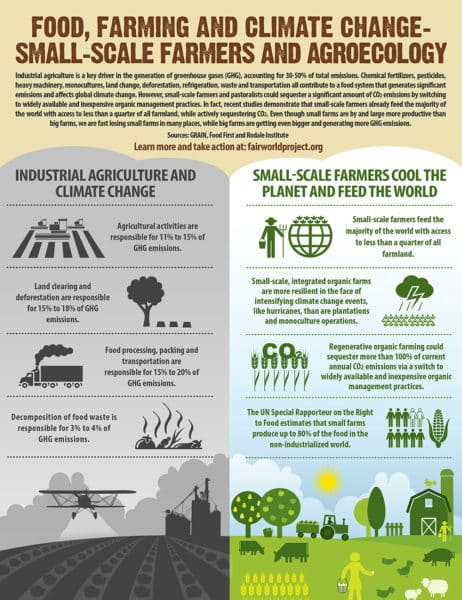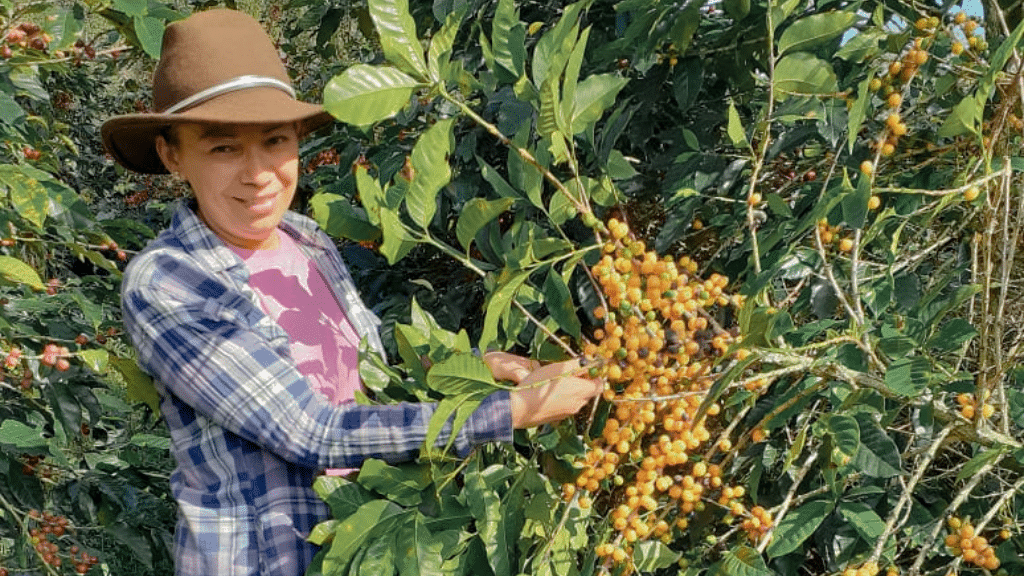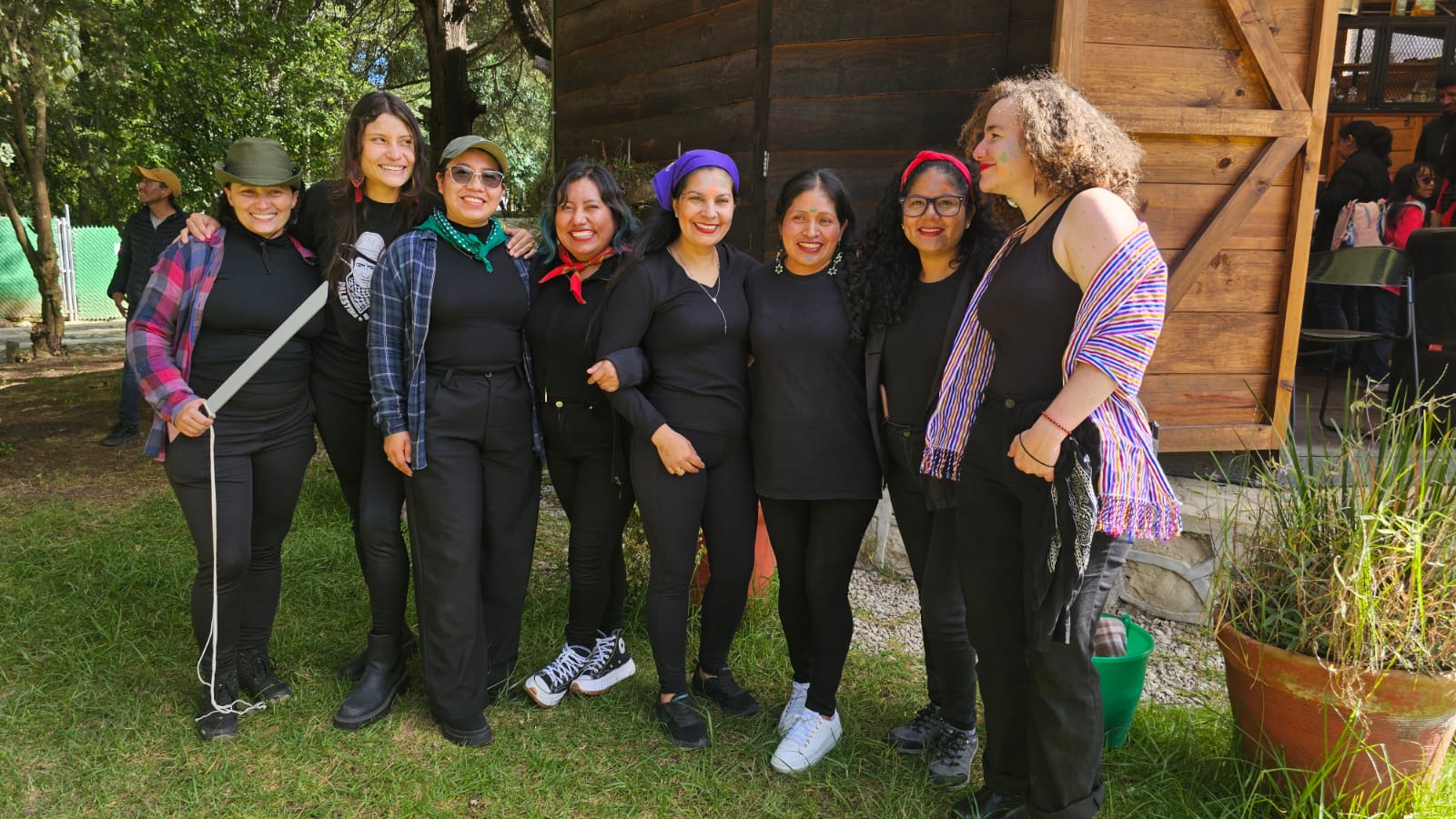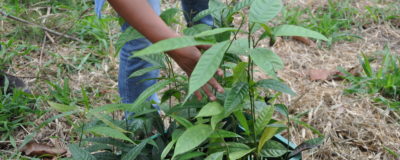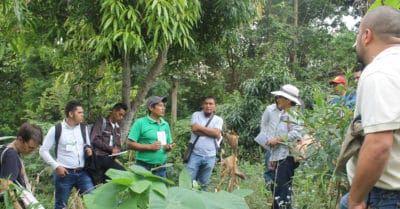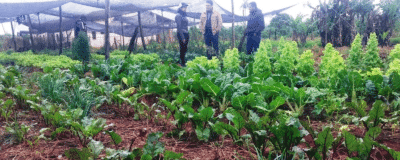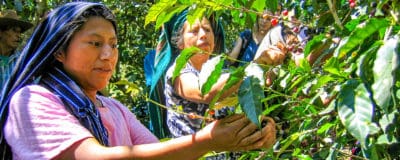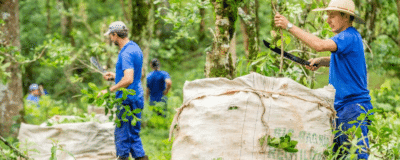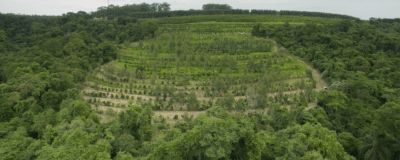Our future relies on regenerative practices. But small-scale farmers need help.
Industrial agriculture and food production are major contributors to climate change. Small-scale farmers do a lot for the environment — not to mention that they feed the majority of the developing world.
However, these farmers experience increasing pest pressure, decreasing yields, and challenges from a quickly changing landscape. These issues threaten their livelihoods and have serious implications for those who depend on their crops.
Scaling and spreading agroecological strategies for combating climate change and feeding hungry communities must be a global priority. Despite the serious threat that climate change poses to humanity, and to small-scale farmers in particular, proven solutions like planting in agroforestry systems and using cover crops and compost to boost soil organic matter and fertility receive little government or market support.
Why Small-Scale Farmers?
380 million smallholder farming families in the Global South produce over 70% of food (as measured by total calories) for the Global South and at least half, by the same measurement, consumed globally.
Small-scale farmers are among the most affected by climate change even though they don’t produce a lot of greenhouse gas emissions.
Small-scale farmers practicing regenerative organic agriculture can drawdown greenhouse gas emissions and help mitigate global climate change.
Small-scale farmers receive little government or market support and safeguards and are vulnerable to increasing pest pressure, decreasing yields, and climate extremes.
Working Towards a Sustainable Future
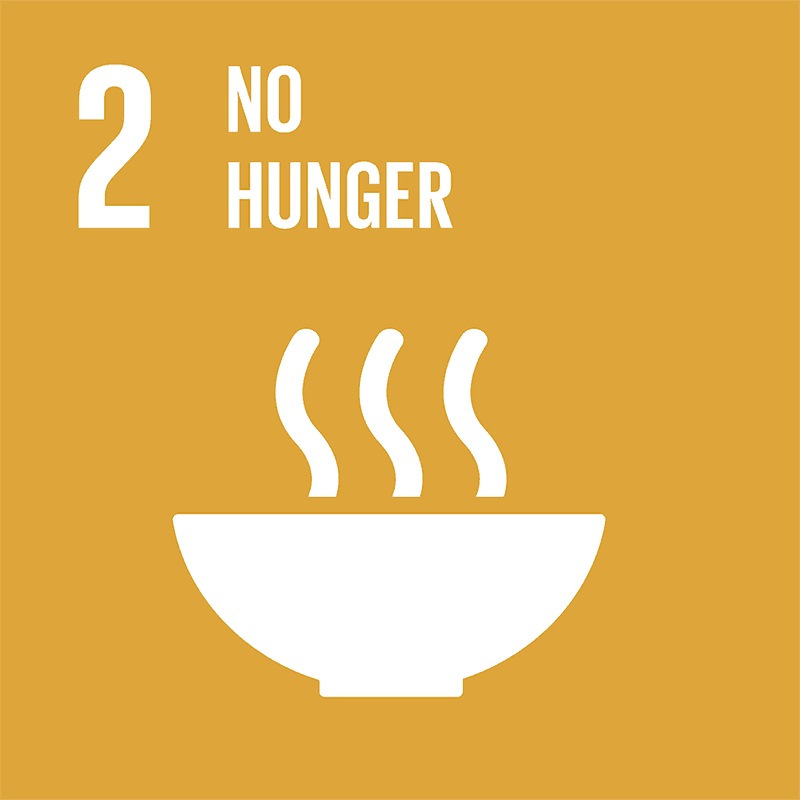
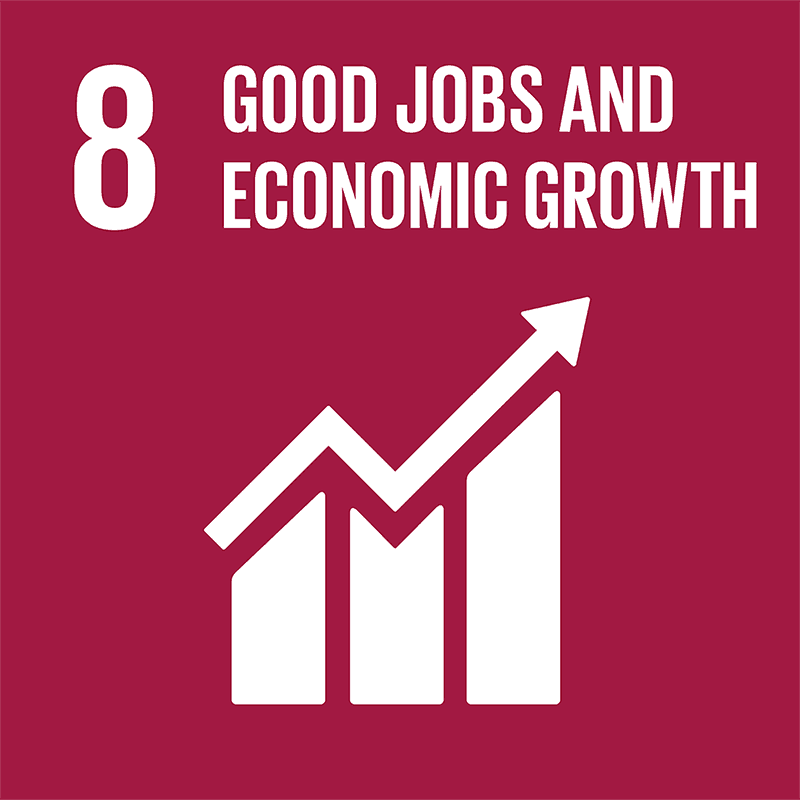
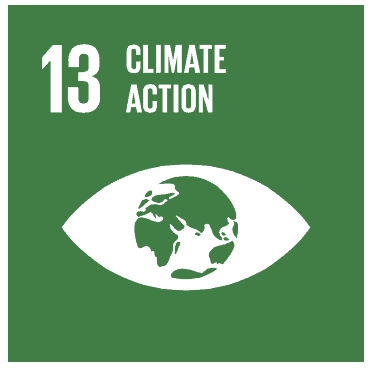
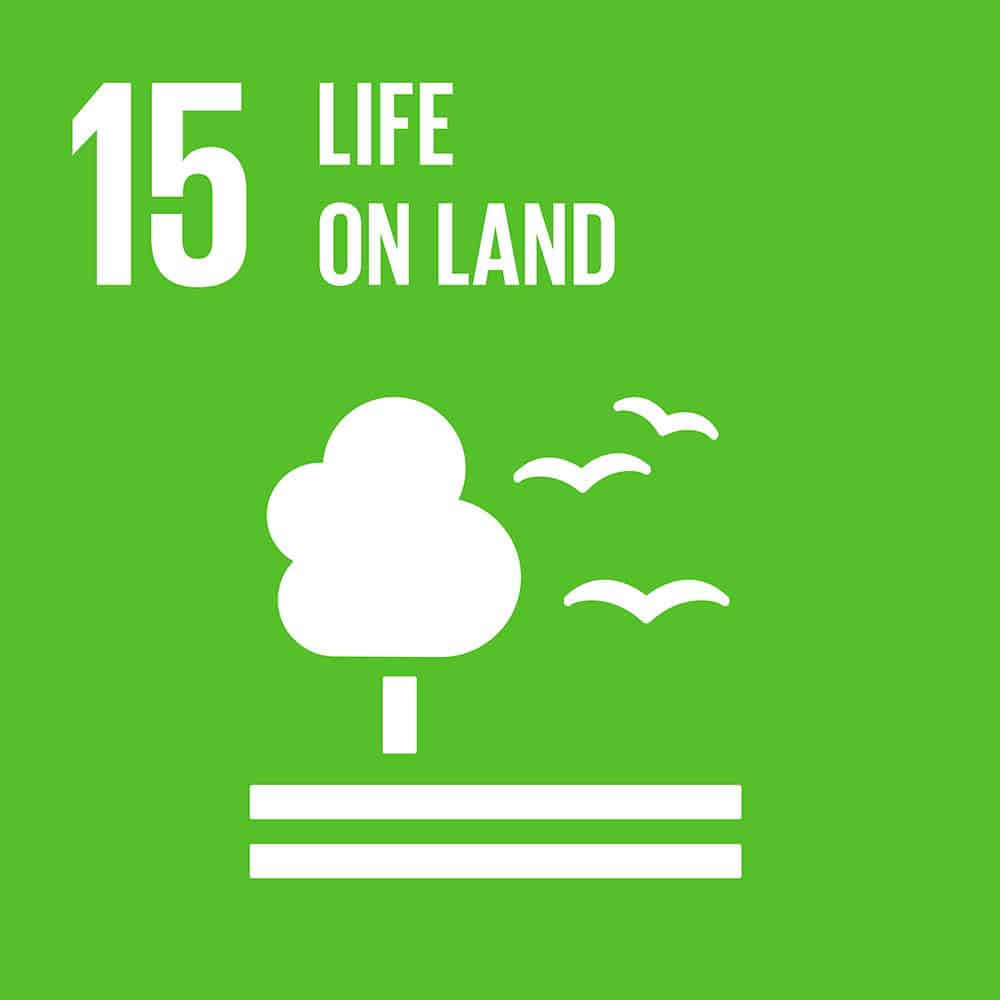

Introducing Agroforestry
Agroforestry is a system of planting crops and trees together to improve social, economic, and environmental benefits. Planting in agroforestry systems allows farmers to restore water and nutrients to their soil, increase the production of food, and pull carbon dioxide out of the atmosphere.
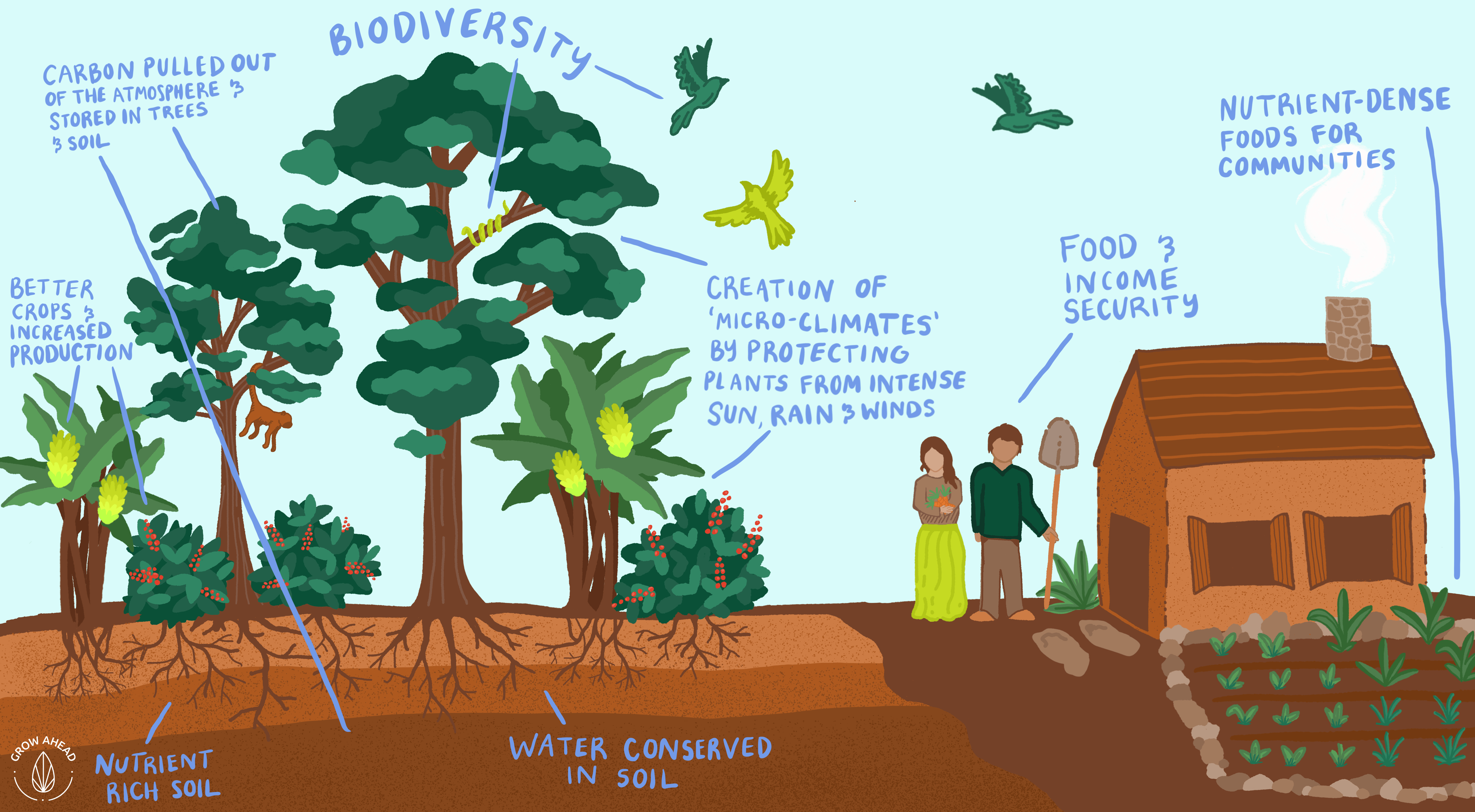
Small Farmers Cool the Planet
Industrial agriculture drives 30–50% of total greenhouse gas (GHG) emissions. The list of culprits from big farms includes:
- chemical fertilizers
- pesticides
- heavy machinery
- monocultures
- land change
- deforestation
- refrigeration
- waste
- transportation
The result? A food system that creates emissions and global climate changes.
However, studies show that small-scale farmers are experts at doing more with less. They feed the majority of the world with a quarter of all farmland. And they even manage to reduce emissions along the way.
Though small farms are more productive and have ample potential to contribute to climate resiliency, they're fading fast. By switching to organic management practices like agroforestry, they can continue to reduce GHGs while upping production.
Support a Campaign
Our campaigns raise money for projects that are completely designed, implemented, and managed by community cooperatives. This is a radical shift in community development, placing trust in local knowledge and expertise. As a result, communities have more sovereignty over their food supplies and resources to spread knowledge on sustaining their communities and their lands.
Enhancing Climate Resilience on Coffee Farms
Country: Honduras
Grow Ahead has teamed up with COMSA to support the planting of 160,000 trees and train 1,200+ farmers to utilize agroforestry as a means of increasing yields and supporting coffee lands long-term.
Fieldwork Grants for the Masters in Agroecology at ECOSUR, México
Country: Mexico
Grow Ahead has teamed up with ECOSUR to support 10 Masters in Agroecology students. These students are actively working on developing tools for transformation born from real community needs and capabilities.
